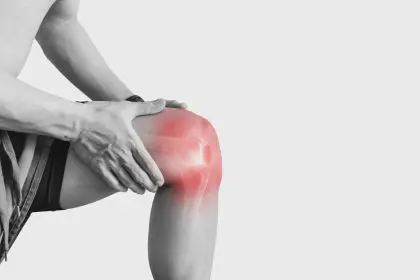Glaucoma is a group of eye conditions that damage the optic nerve, which is crucial for good vision. This damage is often caused by abnormally high pressure in your eye. It is one of the leading causes of blindness for people over the age of 60. However, it can occur at any age but is more common in older adults. Understanding what causes glaucoma is essential for prevention and management. In this article, we will delve into the various factors that contribute to the development of glaucoma, how these factors affect the eye, and what steps can be taken to mitigate the risks.
Understanding glaucoma
Glaucoma is not just one disease but a group of conditions that result in optic nerve damage. The most common type, primary open-angle glaucoma, develops slowly and is often asymptomatic until significant vision loss has occurred. Another type, angle-closure glaucoma, is less common but can appear suddenly and is considered a medical emergency. Both types, however, share a common element: increased intraocular pressure (IOP).
Causes of increased intraocular pressure
Overproduction of aqueous humor
Aqueous humor is the fluid produced by the eye to nourish tissues and maintain eye shape. Normally, this fluid flows out of the eye through a drainage system called the trabecular meshwork. However, if the eye produces too much aqueous humor, or if the drainage system doesn’t work properly, the fluid can build up, increasing the pressure inside the eye.
Poor drainage
Even if the eye produces a normal amount of aqueous humor, glaucoma can still develop if the fluid doesn’t drain properly. This poor drainage is often due to blockage or malfunction of the drainage channels. In angle-closure glaucoma, the drainage angle formed by the cornea and iris becomes too narrow, preventing the aqueous humor from flowing out of the eye and causing a rapid increase in IOP.
Genetics
Glaucoma tends to run in families, indicating a genetic predisposition. Researchers have identified several genes that play a role in the development of glaucoma. If you have a family history of glaucoma, you are at higher risk, and regular eye exams are essential for early detection and prevention of vision loss.
Secondary causes of glaucoma
Eye injuries
Trauma to the eye can damage the drainage system, leading to increased IOP and glaucoma. Even if the injury occurred years before, it can still result in delayed onset of glaucoma.
Inflammatory conditions
Inflammatory eye conditions such as uveitis can block the eye’s drainage channels, increasing the risk of developing glaucoma. These conditions often require careful management to prevent secondary glaucoma.
Medications
Prolonged use of corticosteroid medications, whether in eye drop form or systemic, can increase IOP and lead to glaucoma. It is crucial to use these medications under the guidance of a healthcare professional and have regular eye exams to monitor for potential side effects.
Other eye conditions
Certain other eye conditions, such as severe myopia (nearsightedness), tumors, or retinal detachment, can also increase the risk of glaucoma. Managing these underlying conditions can help reduce the risk of developing glaucoma.
Risk factors for glaucoma
Age
The risk of developing glaucoma increases with age. People over 60 are at higher risk, and this risk increases slightly with each year of age.
Ethnicity
Certain ethnic groups, such as African Americans, Asians, and Hispanics, have a higher risk of developing specific types of glaucoma. For instance, African Americans are more likely to develop primary open-angle glaucoma, while Asians are more prone to angle-closure glaucoma.
Family history
As mentioned earlier, a family history of glaucoma increases your risk significantly. If a close relative has glaucoma, you should have regular comprehensive eye exams to detect early signs of the disease.
Medical conditions
Certain medical conditions, such as diabetes, hypertension, and heart disease, can increase the risk of glaucoma. These conditions can affect blood flow to the optic nerve, exacerbating the damage caused by high IOP.
Preventing and managing glaucoma
Regular eye exams
The most effective way to prevent glaucoma-related vision loss is through regular eye exams. Early detection can lead to timely treatment, which can prevent or slow the progression of the disease. Adults should have a comprehensive eye exam every one to two years, especially if they have risk factors for glaucoma.
Medications
For those diagnosed with glaucoma, medications are often the first line of treatment. Eye drops or oral medications can help reduce IOP by decreasing the production of aqueous humor or improving its outflow. It is essential to follow the prescribed treatment regimen to manage the condition effectively.
Surgical interventions
In cases where medications are not sufficient, surgical interventions may be necessary. Procedures such as laser therapy or conventional surgery can help improve fluid drainage and reduce IOP. These procedures are usually outpatient and can significantly improve the quality of life for those with glaucoma.
Lifestyle modifications
Certain lifestyle changes can help manage glaucoma and reduce the risk of its progression. Regular exercise, maintaining a healthy diet, avoiding smoking, and managing stress can all contribute to better eye health and lower IOP.
Conclusion
Glaucoma is a complex eye condition with multiple causes and risk factors. Understanding what causes glaucoma in your eyesight is crucial for prevention, early detection, and effective management. While increased intraocular pressure is a primary factor, genetics, age, ethnicity, and other medical conditions also play significant roles. Regular eye exams and prompt treatment can prevent significant vision loss. By staying informed and proactive about eye health, you can protect your vision and maintain a high quality of life.

















